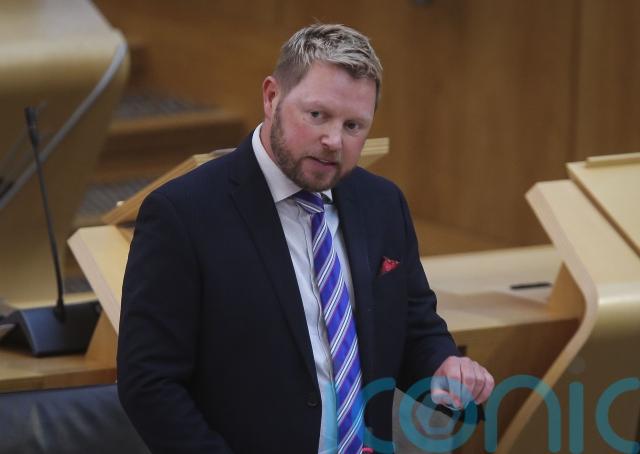
Sharing indecent images online has “become the norm” for young people and some do so rather than facing “constant, almost bullying behaviour”, MSPs have been told.
Daljeet Dagon of Barnardo’s Scotland told members of Holyrood’s Criminal Justice Committee on Wednesday that youngsters face being “pestered again and again and again” to share pictures.
She told MSPs: “What we have had young people say is it is better to get it over and done with, because if you don’t consent to it then you just get pestered again and again and again.
“That is worse than actually sharing the image in the first place, because it is over and done with.
“I remember when a young person first told me that I was shocked.
“But at the same time I can understand that kind of constant, almost bullying behaviour.”
She told the committee that while such behaviour has “become the norm”, it is “not new” – noting the situation has been “exacerbated by technology”.
Previously, she said images would be taken consensually with disposal cameras, although she added that had meant there were “opportunities to intervene” before the photographs were developed and collected and “before they were shared”.
Conservative MSP Jamie Greene had asked if authorities are “trying to police the unpoliceable” in relation to the sharing of such images.

He stressed he was “not talking about the issue of people committing horrific, serious online sexual assault, exploitation, abuse”.
But with growing numbers of young people having access to mobile phones, he spoke about how “this sort of behaviour has become normalised because of technology”.
Ms Dagon said: “None of this is new behaviour, it has been exacerbated by technology but it is not new behaviour.
“Sharing consensual imagery was the norm when I was growing up, the difference was it was a disposal camera.
“Whereas now it’s ‘aye, alright I’ll do it’, and you click that button and you think ‘I wish I hadn’t done it’.”
At 10am on SPTV we hear from @ScotGovJustice on SSI for 2024 @Interpol conference. Then we'll question @BarnardosScot @StopItNowScot @NCA_UK @NSPCC_Scotland @PoliceScotland @socworkscot on tackling online child abuse, grooming and exploitation. 📺👉 https://t.co/lKZTAZRKHs pic.twitter.com/dZQqBAdCKI
— Criminal Justice Committee (@SP_Justice) May 31, 2023
During her evidence, Ms Dagon also conceded: “We still don’t have an understanding of what the scale and nature and extent of child sexual abuse is in Scotland.”
She said this is a “critical issue” for politicians and those working with young people to consider.
Stuart Allardyce, director of the Stop it Now! programme set up by the charity The Lucy Faithfull Foundation which works to prevent child sexual abuse, complained of a lack of a strategy for tackling the problem in Scotland.
He said: “There is an action plan for Wales, and separate from that a Home Office strategy for tackling child sexual abuse in England. But nothing in Scotland.
“It means that there’s no strategic vision and it means that solutions are often piecemeal and quite disconnected from each other and they’re not adequately resourced.”
He went on to tell the committee that deterrence work funded by the Home Office in England “does not extend to Scotland and there is no ring-fenced funding for deterrence and disruption work in Scotland at the moment”.
Joanne Smith, NSPCC Scotland policy and public affairs manager, said: “It’s extremely concerning that children are being pestered and pressured into sending indecent images of themselves, which are then quickly and easily shared online.
“We know that more than three-quarters of this material found online is self-generated, and it’s crucial that tech companies take active steps to ensure their products and services do not assist the sharing of child sexual abuse content and, where they do, regulators have the power to step in to protect children.
“It’s also important for parents, carers and teachers to talk with young people about the importance of consent and what a healthy relationship looks like, so they can recognise signs of sexual abuse and exploitation.
“Talking with young people about the risks of sharing nude images is crucial so they feel comfortable to speak to a trusted adult if someone is pressuring them to share such content.
“We are calling on the Scottish Government to develop a national strategy to prevent child sexual abuse and to conduct a prevalence survey in Scotland to understand the numbers of children affected and the scale of the suffering.”
Subscribe or register today to discover more from DonegalLive.ie
Buy the e-paper of the Donegal Democrat, Donegal People's Press, Donegal Post and Inish Times here for instant access to Donegal's premier news titles.
Keep up with the latest news from Donegal with our daily newsletter featuring the most important stories of the day delivered to your inbox every evening at 5pm.